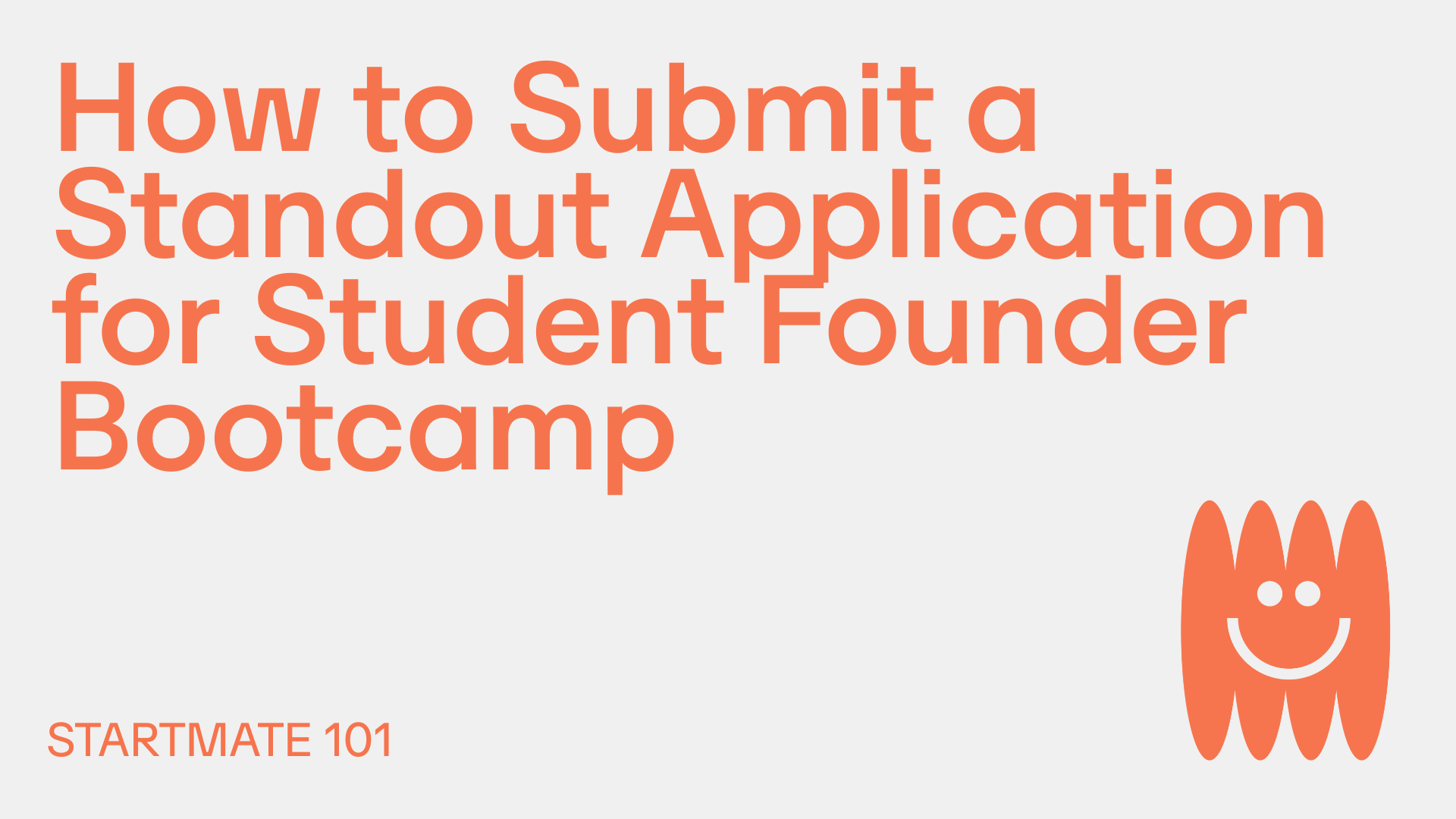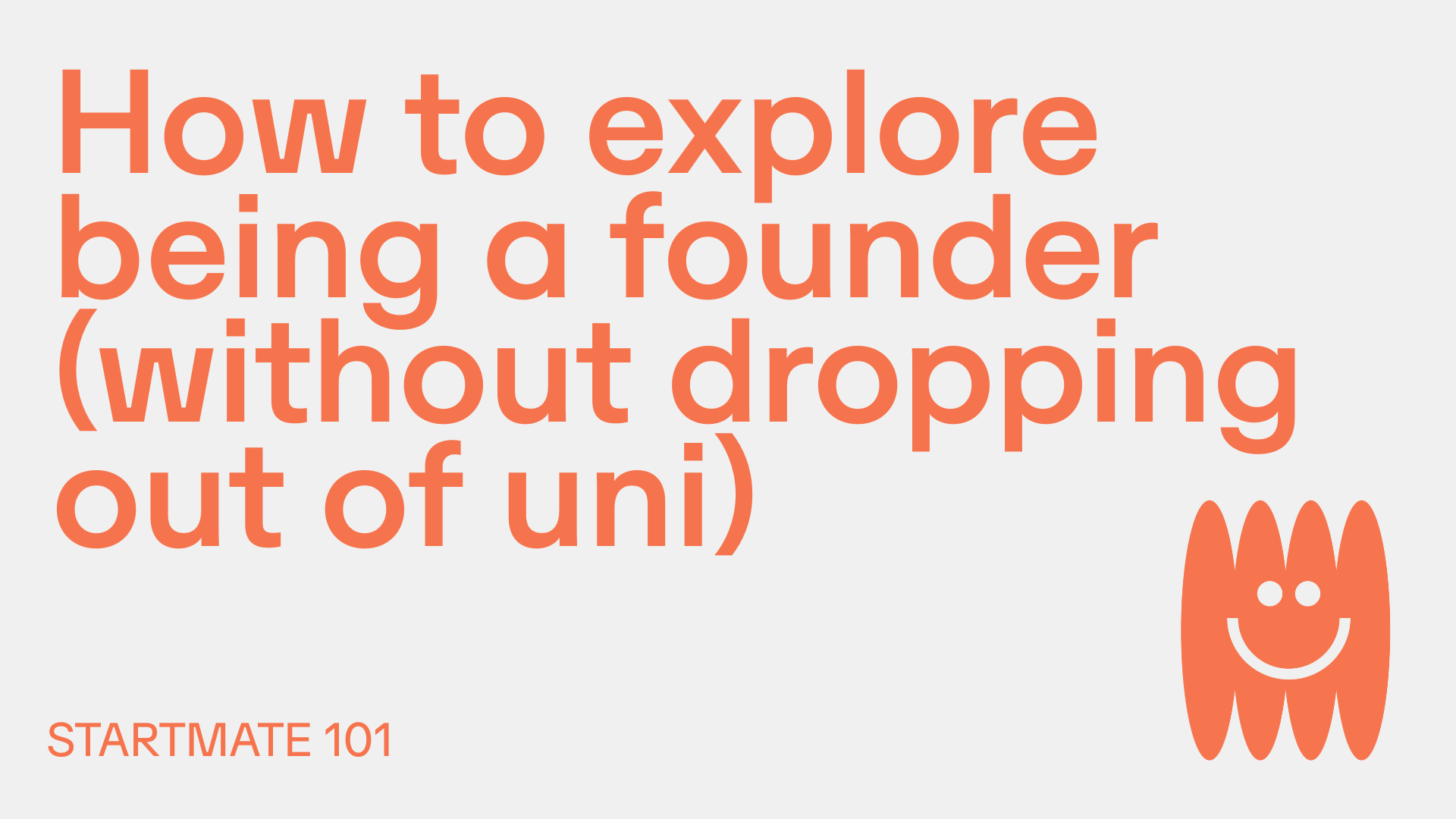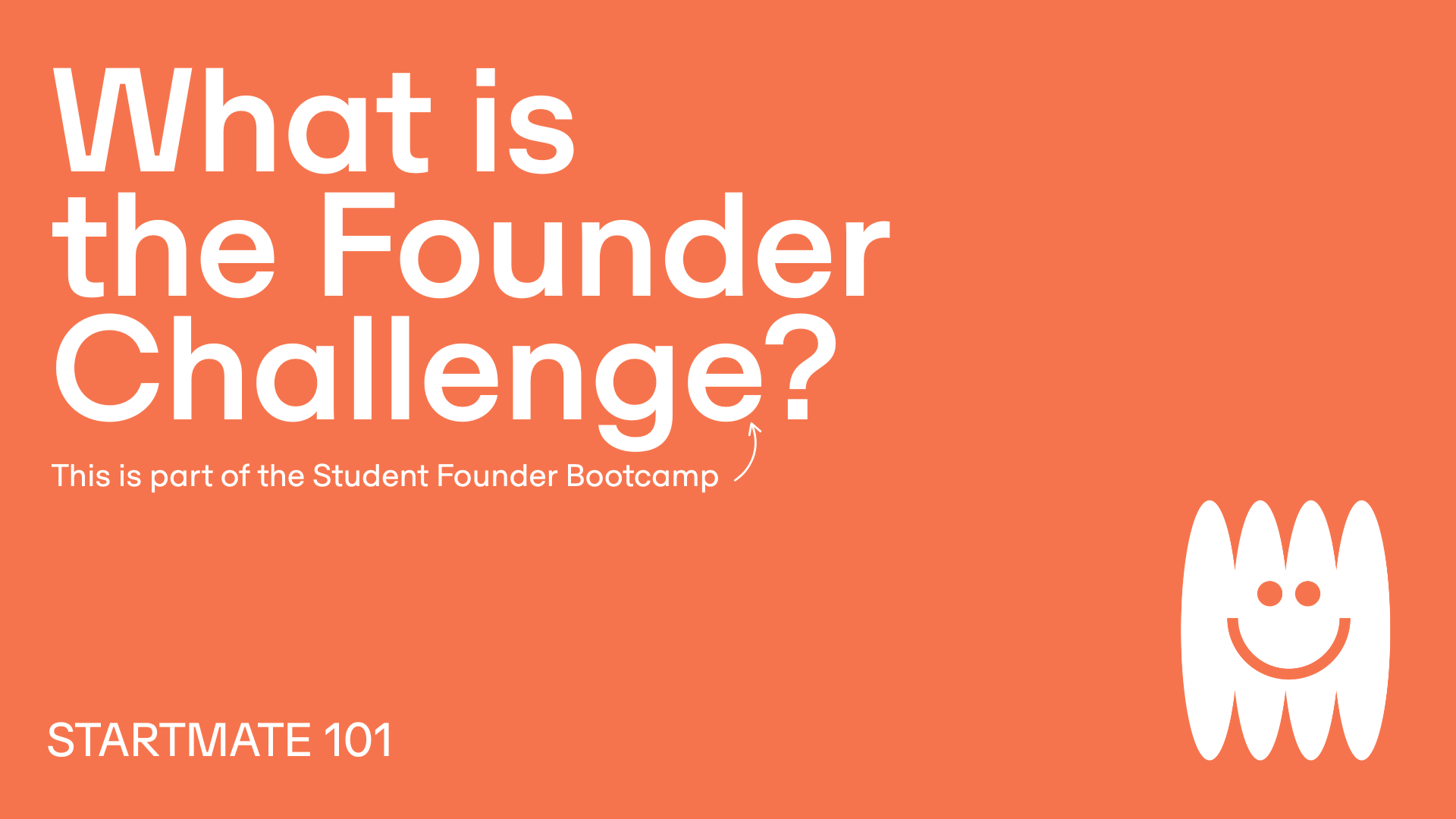Foreword: As I near graduation, I have been reflecting on how startups fit within my career plans, and why I have previously discounted the viability of this arena.
Startmate’s Student Fellowship offered us an opportunity to hear from some of Australia’s most successful founders, as they shared insights into the intuition and rationale behind their career decisions. Although our speakers would not lament their corporate tenure, it did occur to me that most would opt to join a startup earlier in their career if they had a do-over.
To understand this sentiment, I considered the typical career roadmap of our speakers and others from the startup community.
Graduate from uni → Secure gig at FAANG, consulting, banking, etc. → Quarter-ish-life crisis → Join a startup.
This template continues to serve as the normal career progression plan for many university graduates — including myself. But why is this the case? And why do we continue to ignore the advice of those who’ve already walked this path?
I imagine some students would say they didn’t want to ‘waste their marks’ or ‘they had to experience the landscape themselves’. A larger majority would say they valued job security, prestige, or salary.
But even if these were their key values in job determinacy, why enter an environment where these values are constrained by industry standards and an outdated bureaucracy? Surely, if these values were your key drivers, one would instead opt for a startup, as the potential for status/prestige, salary and learning opportunities are boundless.
In order to address the motivational mechanisms underlying this paradox, let’s explore this issue through the lens of ‘ambition’.
Australian society, although largely benevolent, is yet to overcome its toxic tendency to mock and ‘humble’ the ambitious — otherwise known as tall poppy syndrome. These attitudes have become woven in the fabric of Australian culture. They are reflected in the Global Innovation Index 2020, where Australia has continually produced less innovation outputs relative to its level of innovation investments.
Is our culture to be blamed for this? It appears so. But things are slowly changing…
Over the last decade, Australia has tried to pivot into a digital economy and establish itself as an innovation hub by investing heavily in R&D and STEM at a school and tertiary level. These efforts have been bolstered by COVID-19, which has effectively democratised the innovation landscape, enabling more and more talent and investment to access our opportunities. However, to close the innovation output gap further, more needs to be done locally.
During Niki Scevak’s keynote he explained how American entrepreneurs always view things in terms of global domination vs Aussie's who localise their potential. He likened ambition to a metaphorical honeypot — one where the ambitious will always attract the ambitious.
I think Australian students inadvertently foster this constrained mode of thinking by continually co-opting for 'safe' pathways. To disturb this herd mentality and the notion of a traditional career pathway, more of us need to choose startups as a first option upon graduation.
If ambitious individuals continually pick startups over household names, perhaps we can reframe the flawed decision matrices students use in their career decisions and, more importantly, begin to deconstruct the paradigms of prestige which preside the career landscape. In this sense, we can start normalising startups as a viable career option and remove the cognitive dissonance for students, which so often results in ambitious individuals wasting precious years slaving to the machine trying to build ‘cred’.
By removing this vestige of prestige which monopolises our mental model, we can begin to sow the seeds of ambition in future generations and cultivate an ecosystem where tall poppies can continually grow without fear of reprisal.
Maybe then, we will have a different ideal career roadmap for ambitious students.








